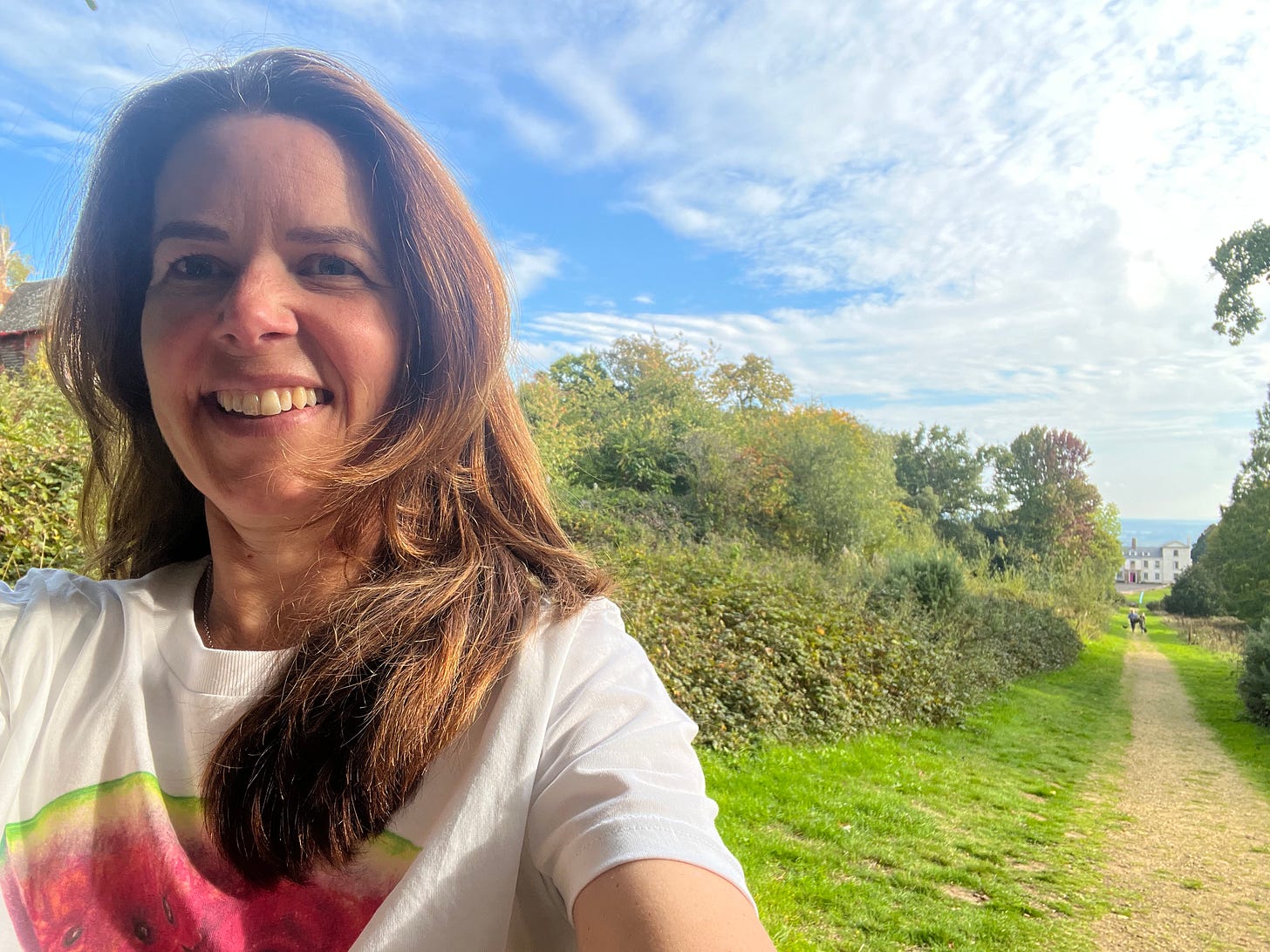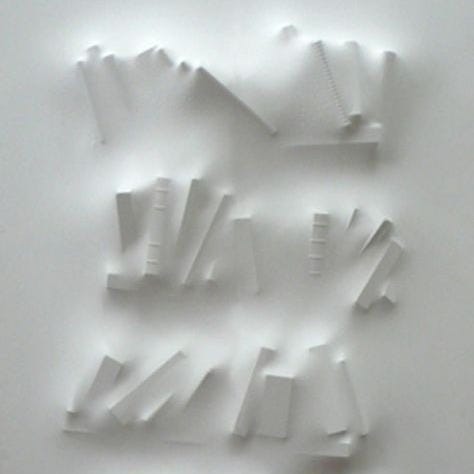Things have really ramped up in October and this week was full (and we are only on the third day!)
At the weekend I visited Leith Hill Place to join other poets to celebrate National Poetry Day.
I love it when poets come together. Many of them are unafraid to admit to their fears. I mean, we’re not a wobbly mess of worry, but it’s such a relaxing atmosphere to be amongst people who openly share about the impact of their alcoholic father through a poem, or about the fear of nearly dying or how they noticed the particular atmosphere in the woods in a particular day in autumn. Writing a poem, being a poet is getting up close into the face of life and not blinking.
So I was delighted that Monday began with our fortnightly session of the poetry hub. I love these two hours, where we come together in the local library to ‘have a go’. This week we were looking at snowball poems, which caused some confusion because we are only just in autumn. A snowball poem is where you begin with one word for line one, two words for line two and so on, so the poem grows gently, but steadily like a rolling snowball.
My ‘voice’ which is so often present when I write poetry has been quiet for quite a while, so I wrote this:
Muse
Once visited
Just before sleep
Always ready to play.
Dashing for paper to document
Its dalliances. I’d always welcome it.
Now it stays away; cannot be cajoled.
Plays hide and seek, so adept at it.
It won’t give up its hiding spot. So concealed.
And my lonely naked pages lie there, hopefully, expectantly, waiting.
Even when it feels like the words won’t come in the way we want them to, we can write about that. And I don’t share this because I think it is brilliant. In fact, quite the opposite. I share you to encourage you to create for the process, rather than the outcome.
On Tuesday Sophie Olson (who created the CIC company The Flying Child) and I hosted a two hour workshop for A Disorder For Everyone online about using creative expression as a way to heal trauma. As a survivor of childhood sexual abuse, Sophie’s work often focuses on educating those in the helping professions on how to be vigilant around CSA and the long lasting impact it has. So often when I have worked with people who have experienced trauma, when they finally feel safe enough to share their story, they still freeze.
This is when the structure of a poem can help. Within the workshop Sophie shared her own snowball poems that she had written and described how helpful they were in helping her express the varying experiences that she needed to process. Having the safety of a structured poetic form can help people channel their expression in a way which feels validating but not exposing.
As both a therapist and survivor it was a real honour to join Sophie as we shared with the audience how we have used poetry to help process and bear witness to our own stories. The benefit of having trained as a therapist meant that I could swap hats to share varying perspectives.
It was extraordinary (or perhaps not) how, through our poetry we shared common themes of silence and voicelessness, fragmentation and dissociation, shame and self-blame and other people’s invalidation.
This is the magic of poetry, to be able to share something deeply personal in a way which can still hold the tender heart of the matter, but doesn’t spill out the gore; that, through metaphor we could protect ourselves whilst still connecting with our truth.
Poetry can be an incredibly powerful way of regaining autonomy. It can not only be a vehicle for protection, but also protest.
During the workshop I shared this poem, which illustrates how metaphor creates that protective distance while still carrying truth:
It wasn’t a hand placed to the mouth, nor gaffa tape, nor rag.
No drama, no soap opera scene where they slugged it out blow for blow.
Instead words were halted by the swoop of an inhale, a rhythmical pursing of the lips,
Which stealthily slid secrets into shivering silence.
A thick blanket tension, that sat so close to the skin,
Where no meant yes and yes meant no.
This poem was all about capturing the felt sense. In this poem I wanted to set out what harm wasn’t - all the things that people expect and look out for. That harm can often live, hiding in plain sight, which makes it so confusing. Often times trauma is compounded by the silencing, the swallowed shame, the scream not permitted.
There was a very, very quiet part of me that lived in this space of swallowed words - a part that I call hulp. Hulp is a word I’ve made up. It’s a combination of howl and gulp: that moment when you want to cry out, but you immediately censor yourself because you know it’s pointless, and so you gulp that howl down. You ‘hulp’.
This theme of silenced voice - the hulp we carry - is something I’ll be exploring further in a talk I’m delivering at Story 2025 in Nashville (whoop!) next week, where I’ll be speaking on healing our hope.
Perhaps all of us can relate to that moment when we didn’t allow ourselves to speak, when we swallowed down what needed to be said. I’ll be sharing how, through poetry, it’s possible to reclaim those hulps and transform them into hope.
If you are interested in how to use poetry to move your hulp moments to hope moments, you can download my FREE guide here.
Grab a copy, have a go, and let me know how you get on!
Don’t just take my word for it - come join me!
On 25th October I’ll be performing at Pippbrook House.
Despite my woeful marketing abilities tickets for my next show, tickets are already selling quickly!
Finding Your Footing In A Wobbly World is something I want to offer so that we can come together as a community and remember that there is medicine in the mess of life! The venue is small, so make sure if you have got yours if you are planning to come!
Tell your friends, bring your neighbours and invite the in-laws!
When: 25th October, 7:30pm
Where: Ballroom at Pippbrook House, RH4 1SH
Running time: 1 hour 30 mins (including interval)
That’s it for now.
‘Til next time!
Jacky ✨
Fancy finding your word for your own kind of hulp?
A portmanteau is a blend of two words to create a new one that captures both meanings. Like my word “hulp” (howl + gulp), your portmanteau can hold the complexity of an experience that single words can’t quite reach.
How to Create Your Portmanteau:
Keep reading with a 7-day free trial
Subscribe to Jacky Power | The Therapeutic Poet to keep reading this post and get 7 days of free access to the full post archives.



